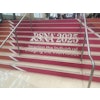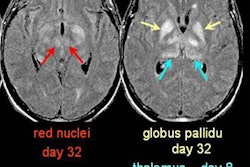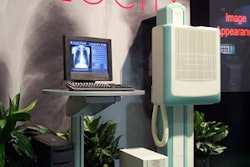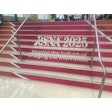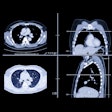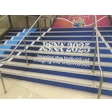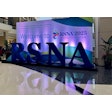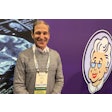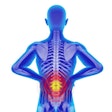In addition to the myriad professional and education requirements that dominate a resident’s life, the powers-that-be have seen fit to ask a little more: Residents must demonstrate that they can master medical information online, as well as use it as a tool for independent learning.
According to the Graduate Medical Education Directory 2002-2003, administered by the American Medical Association, a residency program’s didactic curriculum should "address systems-based practice, with emphasis on an awareness of and responsiveness to the larger context and system of healthcare and the ability to effectively call on system resources to provide care that is of optimal value."
According to the directory, a program should also emphasize practice-based learning and improvement that involves investigation and evaluation of the resident's own patient care, appraisal and assimilation of scientific evidence, and improvements in patient care. Computer applications in radiology, practice management, and health systems and quality improvement are also required curriculum components.
Finally, the general competency requirements set out by the Accreditation Council for Graduate Medical Education (ACGME) state that residents must "use information technology to support patient care decisions and patient education" and to "use information technology to manage information, access online medical information, and support their own education."
How is a resident to cope? The answer may lie with online CME, according to researchers from the University of Arkansas in Little Rock.
"We thought about these requirements and tried to figure out a way to satisfy them in a way that would not be too difficult," said Dr. Jack Long in a presentation at the 2002 RSNA meeting in Chicago. "We came up with using RadioGraphics online CME articles to satisfy these requirements." Long is the chief resident in the department of radiology at the University of Arkansas Medical Center.
To determine how residents would fare with online CME, Long and his co-investigators, Drs. Bruce Greenberg and Sarah Klein, recruited all 20 residents at the hospital (as an author, Long did not participate) into the study group. The residents took the 10-question pre-test before reading each paper and then completed the 10-question post-test, working solely from the Web-based version of RadioGraphics. Four different papers, chosen by the study authors, were read in total; the topics included FDG-PET for breast cancer and pediatric appendicitis.
"Following (the CME) articles, we asked (the residents) to complete a short questionnaire detailing their experience," Long said. "The 12 questions were rated on a five-point scale, one being the lowest score, or strongly disagree, and five being the highest score, or strongly agree. This provided a more qualitative assessment of the CME experience."
According to the results, the average score of the 72 pre-tests was 5.5. The score jumped to 9.3 on the post-reading test (standard deviation = 0.7). Overall, residents took three hours to complete the four articles, or about 45 minutes per article, Long reported.
A t-test analysis also indicated a significant improvement in resident performance (P<.001). The residents said that they only needed one or two articles to become proficient in using the Web format. All of the residents who took the survey said they would continue to use online resources for CME post-residency.
One area where there was some discrepancy was when the residents asked whether the online material measured up to the print version. Half of the respondents gave the online version a lower rating because of its lack of portability. Many of the residents took the CME tests on the three department-based computers equipped with high bandwidth, Long told AuntMinnie.com. Others took the tests on home computers or did a combination of both, he added.
Since this study was conducted, access to RadioGraphics online CME has been made free to all RSNA members-in-training.
By Shalmali PalAuntMinnie.com staff writer
January 15, 2003
Related Reading
Residents in northeast U.S. bear the brunt of on-call duty, survey shows, December 6, 2002
Residents, RTs gain from classes taught by former, December 5, 2002
Residents' reporting skills benefit from standardized testing, November 20, 2002
Copyright © 2003 AuntMinnie.com

